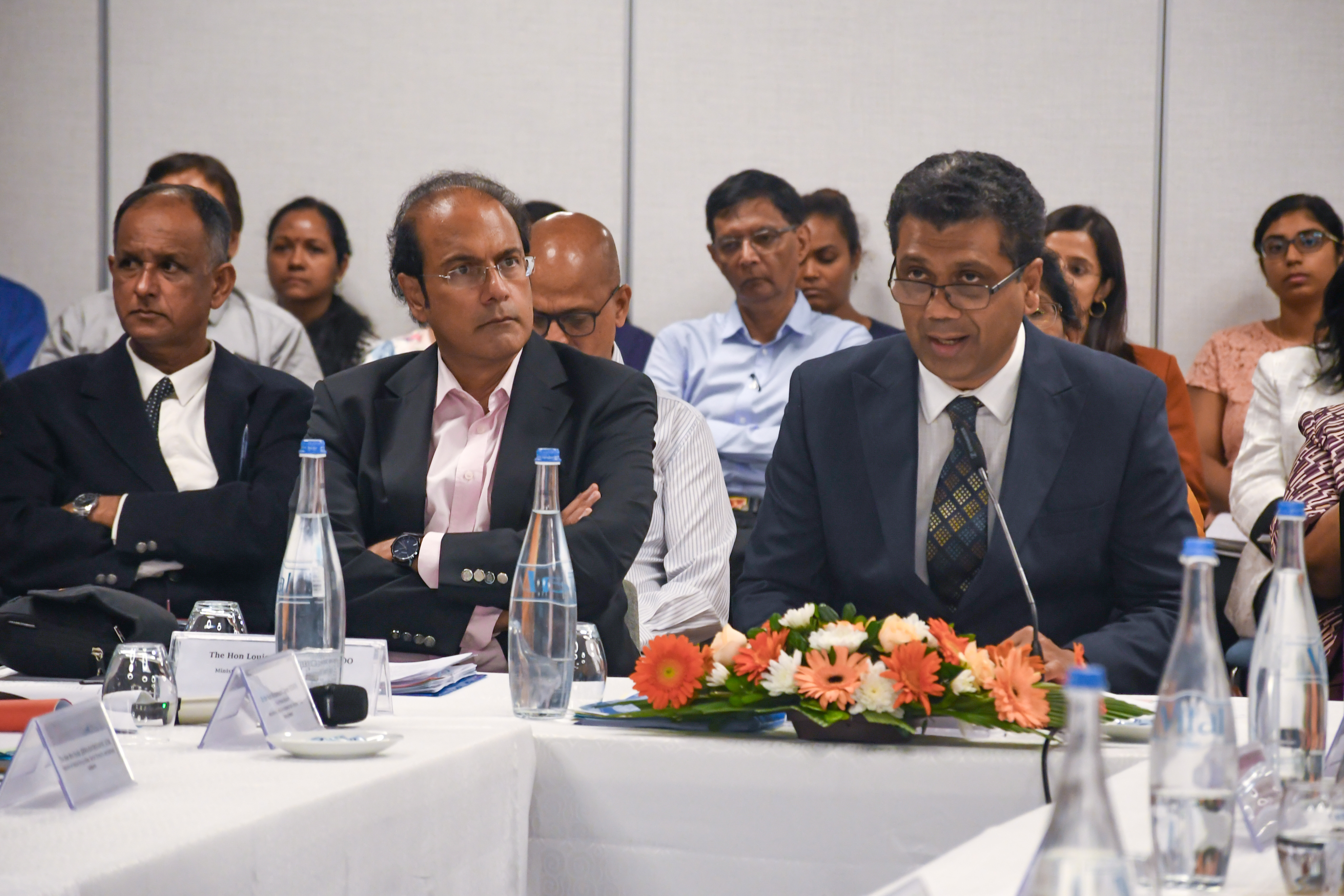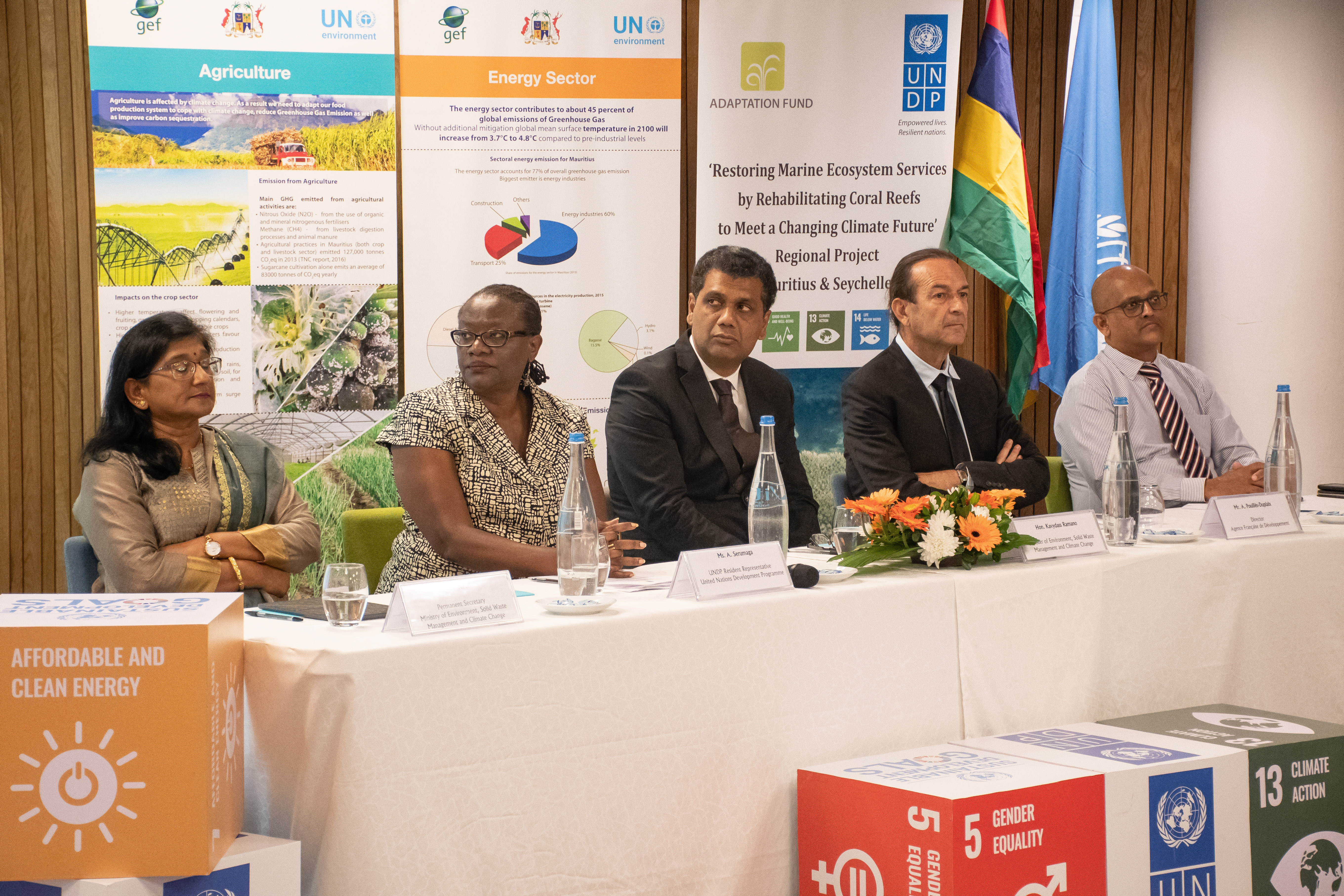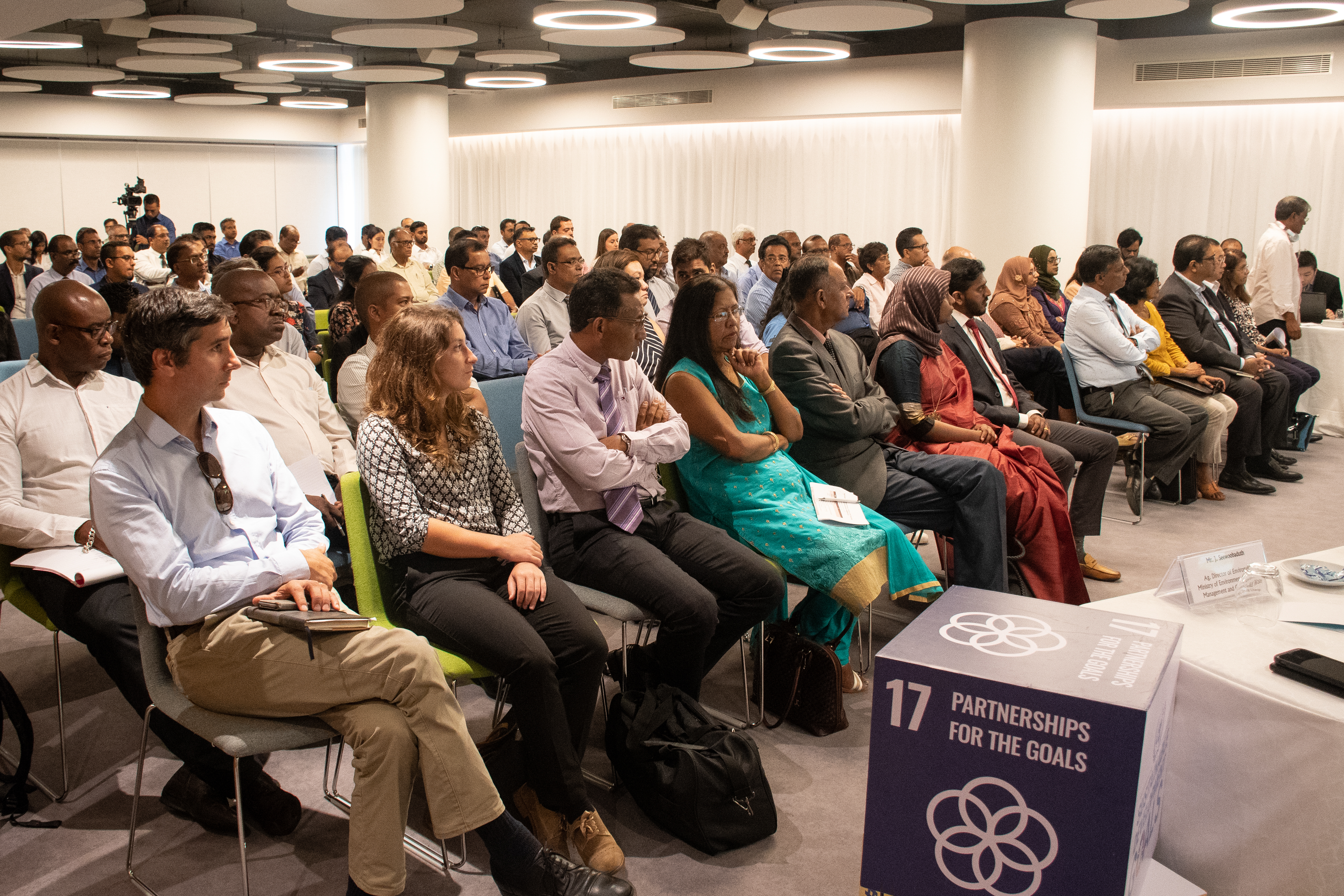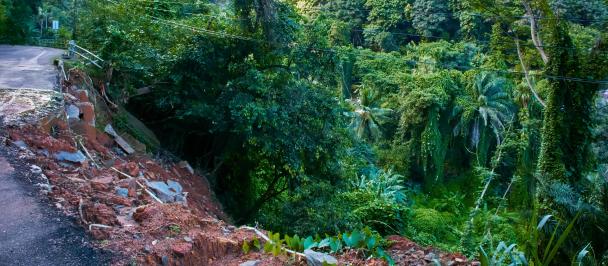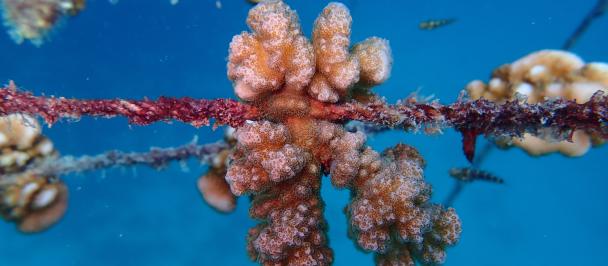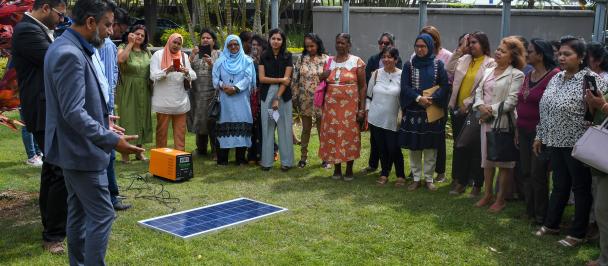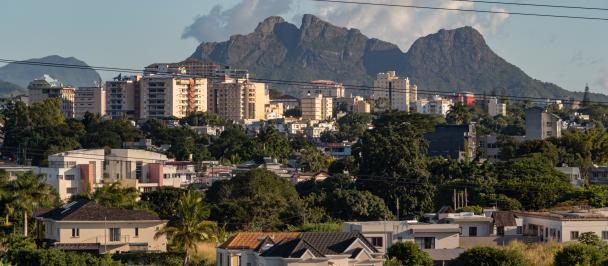The Honourable Louis Steven Obeegadoo, Deputy Prime Minister, Minister of Housing and Land Use Planning, and Minister of Tourism; and the Honourable Kavydass Ramano, Minister of Environment, Solid Waste Management and Climate Change, during the Ministers’ Meeting, held with high-level representatives of various ministries, on 3 March 2021. Photo: Stéphane Bellerose@UNDP Mauritius
Port Louis, 15 March 2021:
Following the launch of the high-level dialogue with sectoral policymakers to review the Mauritius Nationally Determined Contributions (NDCs), ahead of COP 26, on 16 February 2021, the United Nations Development Programme (UNDP), facilitated several rounds of technical consultations on the NDCs in Mauritius and Rodrigues, under the Climate Promise Initiative.
This included a series of 11 sector-specific dialogues on coastal zone management, blue economy, energy, agriculture, biodiversity, tourism, transport, water, infrastructure, health, and waste management, amongst others. Held between 17 and 24 February 2021, these targeted interactions were meant to promote national consensus and affirm political will for the NDCs at national and sub-national levels. The process resulted in considerable progress towards the preparation of the revised NDCs for Mauritius. These consultations were conducted in collaboration with the ‘Agence Française de Développement' (AFD).
The Honourable Kavydass Ramano, Minister of Environment, Solid Waste Management and Climate Change, convened a ministerial meeting on the 3 March 2021 in Port Louis, with the participation of the Honourable Deputy Prime Minister and Minister of Tourism, Honourable Steven Obeegadoo and 11 Ministers, including the Ministers of Housing and Land Use Planning; Local Government, Disaster and Risk Management; Social Integration, Social Security and National Solidarity; Youth Empowerment, Sports and Recreation; Energy and Public Utilities; Health and Wellness; Education, Tertiary Education, Science and Technology; National Infrastructure and Community Development; Minister of Arts and Cultural Heritage; Industrial Development, SMEs and Cooperatives; Financial Services and Good Governance, and Blue Economy, Marine Resources, Fisheries and Shipping. High-level representatives of other Ministries were also in attendance.
The aim of this meeting was to enable the Cabinet to take stock of gaps and needs identified through the consultative process and to discuss sectoral and national targets and implications for increased climate change mitigation and adaptation ambitions. This platform for key policymakers facilitated the formulation of recommendations for enhanced NDCs. During the session, two overview presentations were conducted by experts from PWC India and AETS, on the findings from sectoral dialogues on adaptation and mitigation, and on the development and status of the updated NDCs.
From left to right: Mrs Nathoo, Permanent Secretary, Ms. Amanda Serumaga, UNDP Resident Representative for Mauritius and Seychelles; the Honourable Kavydass Ramano, Minister of Environment, Solid Waste Management and Climate Change; Mr André Pouillès-Duplaix, Director of L ‘Agence Française de Developpement; and Mr Seewoobaduth, Ag. Director of Environment. Photo: Sharon Sunassee@UNDP Mauritius
Following this high-level discussion, a National Consultation Process for the Review of the Mauritius Nationally Determined Contribution was organised on 4 March 2021 and was attended by representatives of the Ministry of Environment, UNDP, AFD and officials of other public and parastatal bodies, private sector operators, academia, civil society, and NGOs.
In his opening speech, the Honourable Kavydass Ramano, Minister of Environment invited all stakeholders to contribute to the discussion on the revision of the NDCs. Noting that this inclusive and participative approach is in line with the ‘Leave No One Behind’ SDGs approach. He stated, “the revised NDCs will be more ambitious so that Mauritius can reaffirm its engagement and contribute to the global effort to fight climate change.”
Mr. André Pouillès Duplaix, Director of AFD, acknowledged that Climate Change is a cross-cutting, cross-sectoral issue, and emphasized the need for collaboration at the national government, economic actors, civil society, and regional levels: “We are convinced that to be achieved, the ecological and energy transitions require strong inter-ministerial dialogues on public policies at different levels.”
Ms. Amanda Serumaga, Resident Representative for UNDP Mauritius and Seychelles, highlighted that despite contributing less than 1% of the global greenhouse gas emissions, Small Island Developing States (SIDS) like Mauritius suffer disproportionately from the impacts of Climate Change. She emphasized that the challenge of implementing the NDCs will require additional efforts from both local and international stakeholders. According to her, this is an opportunity for Mauritius “to showcase to the world that vulnerable SIDS can be vibrant and powerful advocates for Climate Action.”
During the session, the proposed recommendations for adaptation and mitigation targets for the revised NDCs were presented to a wider audience, and feedback was gathered from the stakeholders. Using a digital app with a QR code, participants were invited to take an online survey and submit questions and comments. The results and information gathered at these sessions will be further complemented with ongoing technical studies undertaken with the UNDP Climate Promise Initiative and AFD’s support. The consolidated NDCs, including recommendations for strengthened institutional coordination, and highlighting alignment with the Sustainable Development Goals will then be widely disseminated. It is expected that the revised NDCs will be finalised by May 2021.
The audience during the National Consultation process on 04 March, consisting of representatives of the Ministry of Environment, UNDP, AFD, and officials of other public, parastatal bodies, private sector operators, academia, civil society, and NGOs. Photo: Sharon Sunassee@UNDP Mauritius

 Locations
Locations